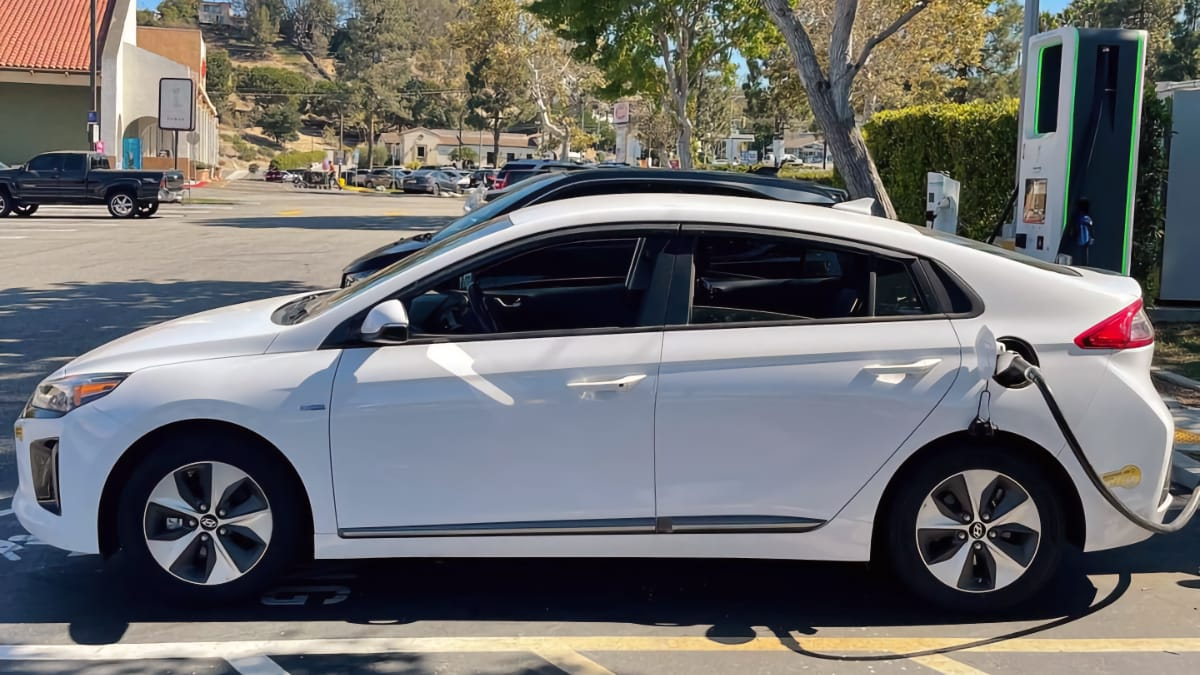At $20,500, Is This 2018 Hyundai Ioniq EV An Unforgettable Deal?
Even though it ended production just a couple of years ago, few likely remember Hyundai’s first stab at an Ioniq EV.
Today's Nice Price or No Dice Ioniq EV is a model that turned out to be a bit of a sales flop for Hyundai. Might that now make it a great value?
Speaking of sales, there's a reason that pickup trucks are top sellers here in the U.S. and it's not because of some nefarious plan by the Illuminati. No, the reason is just that pickups can be versatile, practical, and, if simple enough as many are, reliable.
That pretty much describes yesterday's 1998 Ford F-150 to an XLT. Considering the F-Series' long history as a best seller, it's no surprise that fully 83 percent of you thought it should easily sell at its $6,300 asking price. That vote earned the truck a solid Nice Price win, our second for the week.
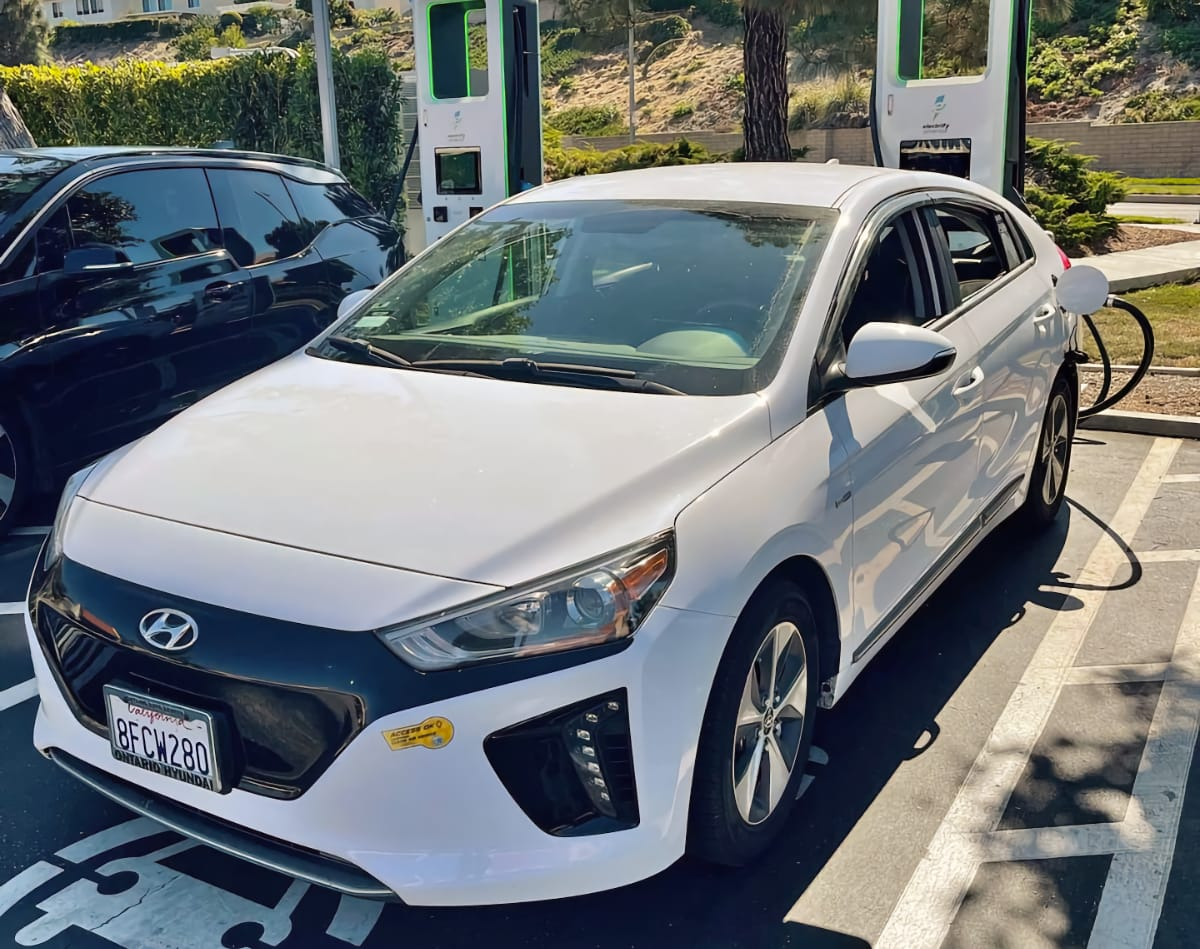
As far as vehicle sales go, it seems that along with pickup trucks, what people want these days are electric cars. Auto manufacturers seemingly can't build enough of them nor make them fast enough to satisfy the rabid demand. That lack of mainstream manufacturing capability is just one of the hurdles electric cars need to overcome. Others include range, battery life and charge time, and the inability to loudly rev the engine at a stop light to indicate the driver's interest in an impromptu drag race.
So far, the public's unquenchable desire for more efficient cars and trucks has been mitigated by the introduction of hybrids; vehicles with smaller than normal gasoline engines, supplemented by electric motors and small battery packs. The biggest proponent of these models is Toyota, which offers hybrid drivetrains across almost its entire lineup as well as the Prius, a marque that has become synonymous with hybrid efficiency as well as funky looks. Other makers have attempted to mimic the Prius model, but none with much success. Hyundai is one such pretender to the throne having introduced in 2016 the Ioniq in multiple hybrid forms.
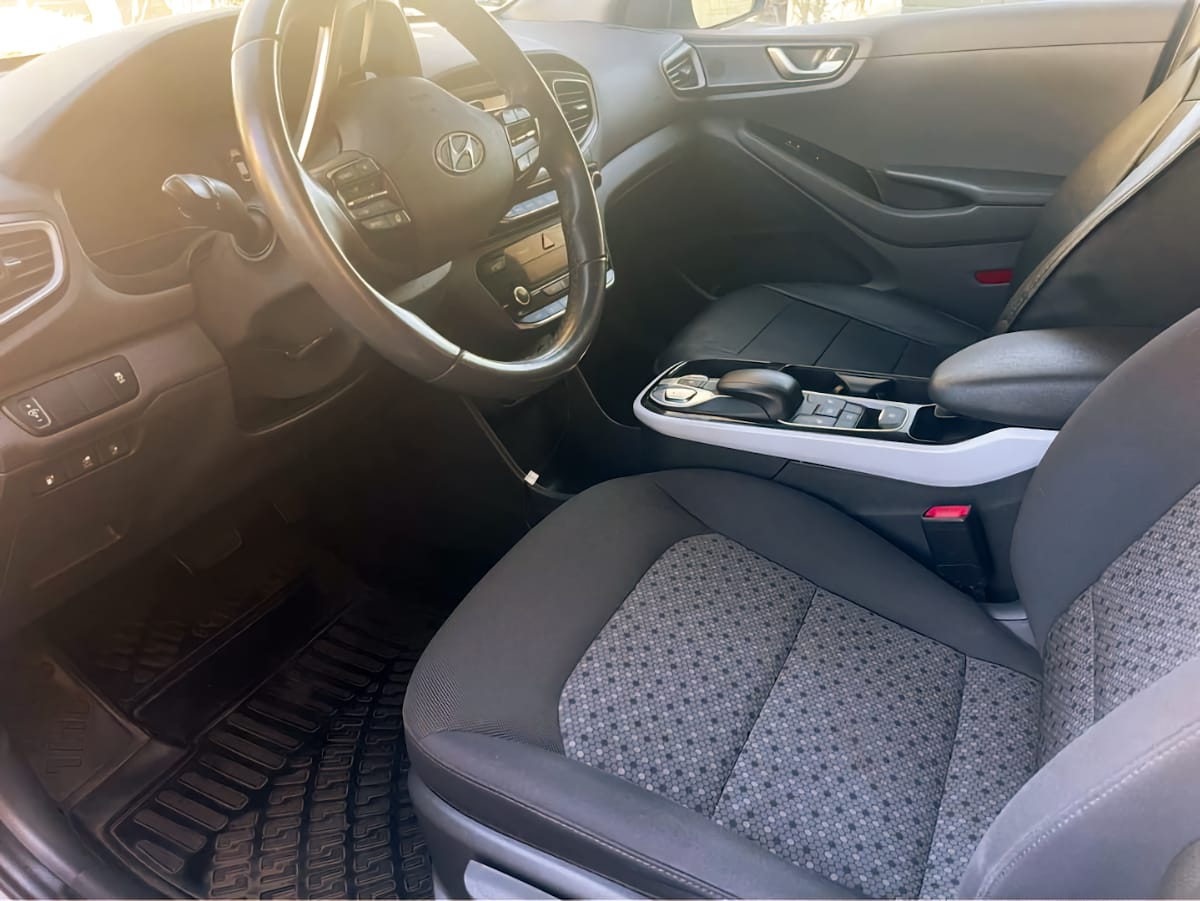
That first generation of Ioniq had the dubious distinction of being Hyundai's "Prius without the ugly," and it went the Toyota model one better by offering a full EV edition.
Now, you may not have ever heard of the Ioniq EV, or perhaps have never actually seen one in the metal as Hyundai limited its sales to just a few markets over the course of its four-year model run.
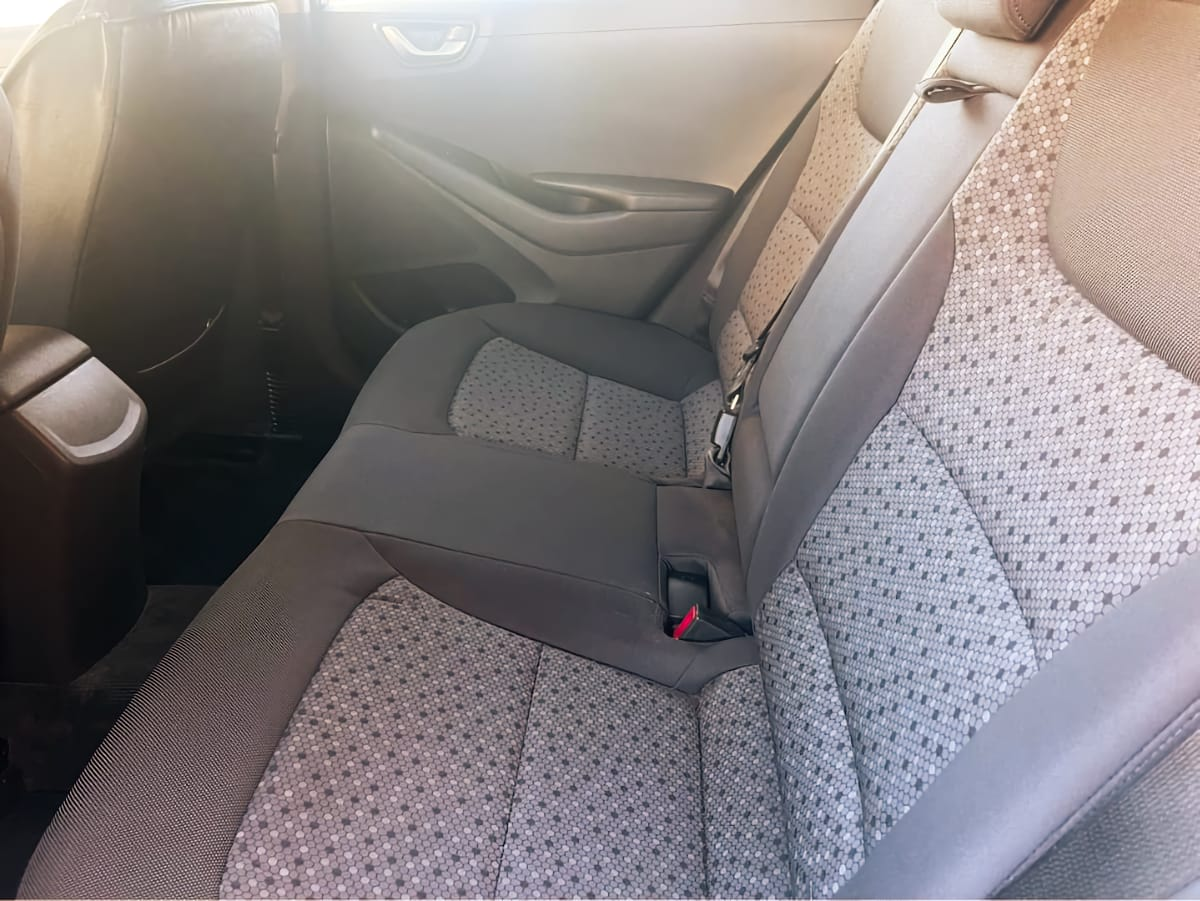
Hyundai has since discontinued the Ioniq EV and replaced the model with the expressively designed and far more capable Ioniq 5. Like most electric cars, that new model is pretty hard to come by these days and tends to go for more than fifty grand when you can actually find one for sale.
That scarcity might make this 2018 Hyundai Ioniq EV a compelling deal seeing as it's less than half that price, even if it's less desirable for only having a little over half the newer car's range.
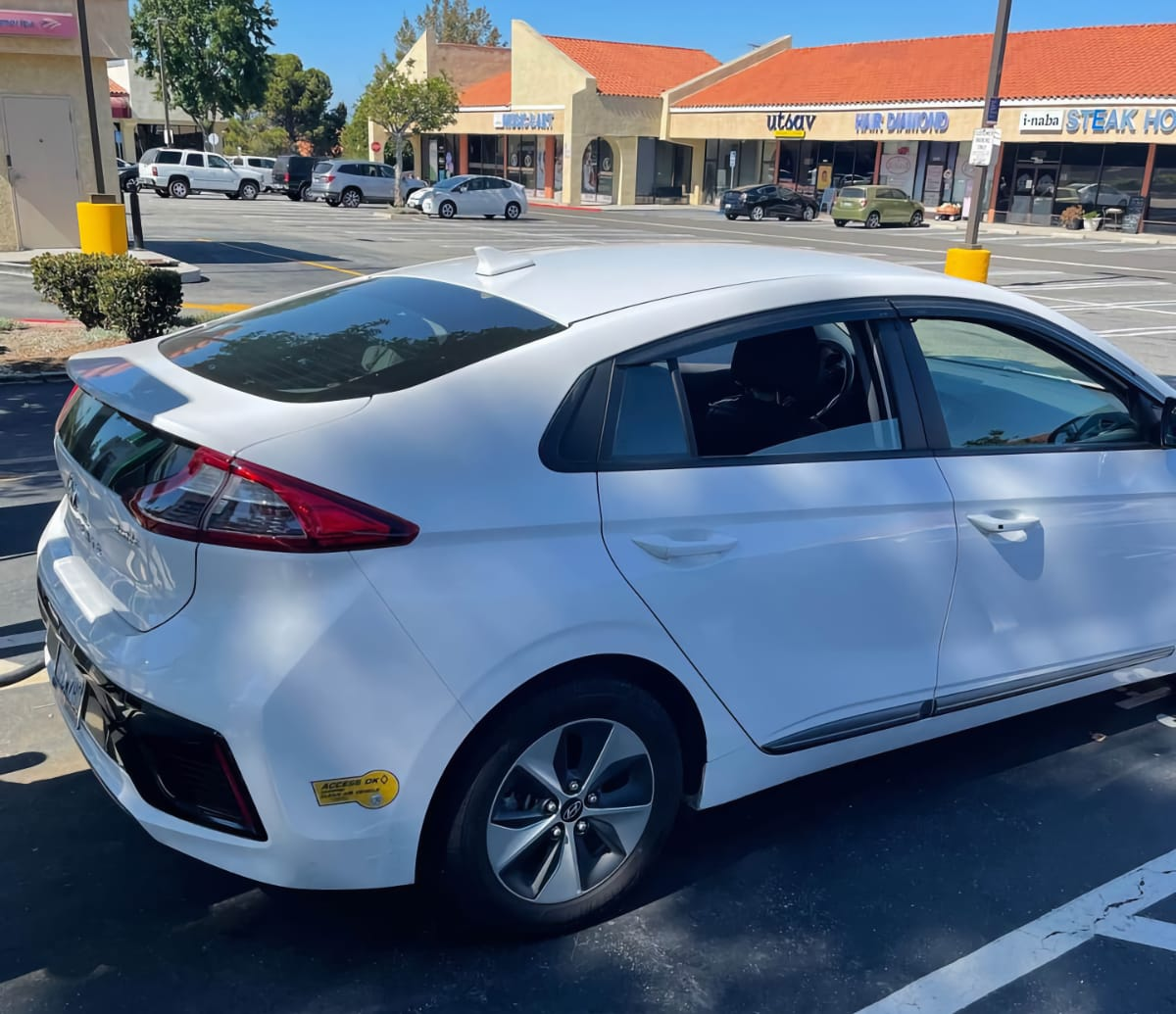
That range for the Ioniq EV is an EPA-estimated 124 miles between plugs. Making the car go is a 118-horsepower DC motor powering the front wheels with most of the controllers and whatnot sitting directly above. No front trunk for this baby. The juice comes from a relatively small 28 kWh battery pack, housed under the rear seat in the space where the fuel tank sits in the hybrid. The battery can be charged via the standard CCS (Combined Charge System) plug at up to 100 kW as well as via regenerative braking with four levels of effort. This all should make the Ioniq a solid around-town commuter car, although a poor choice for road-tripping.
As befitting a car that few even acknowledge exists, the ad for this Ioniq is brief and bereft of detail. somewhat helpfully, it does note a clean title and reasonable 69,000-mile life. The pictures show a car with little to no obvious wear and an interior without issues. Those pics also point out the coveted HOV (High Occupancy Vehicle) stickers that allow driver-only access to California's private club-like carpool lanes. For someone living in one of California's sprawling cities, that certainly adds to the car's commuter cred.
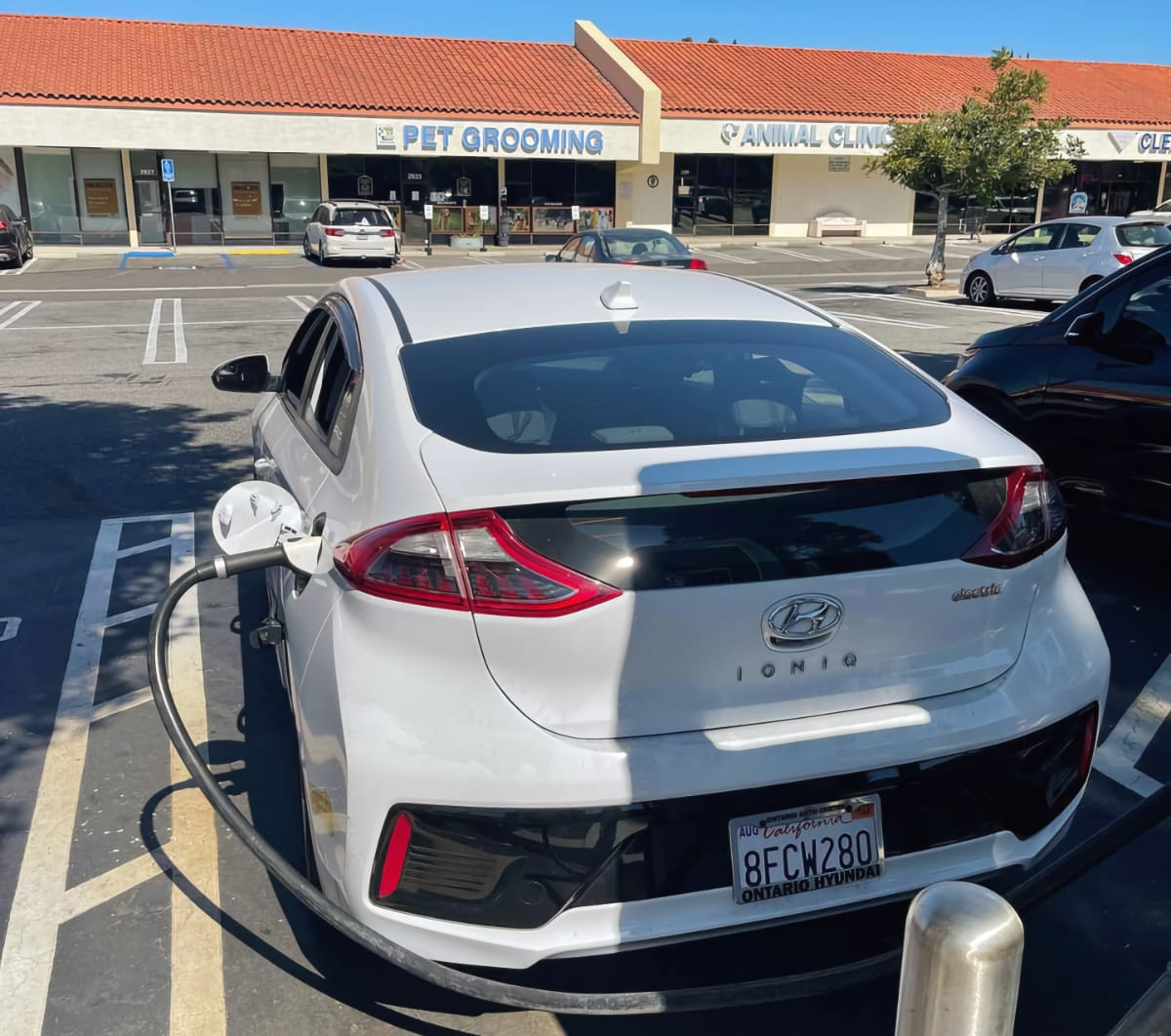
Other than that, we don't get much more info out of the ad except that it is a two-owner car.
To become a three-owner car, the small inconvenience of an exchange of cash will need to take place. The seller is asking $20,500 for the car, which as we noted earlier, is less than half what a new Ioniq5 likely will cost. It's also about ten-grand shy of what any other new electric goes for these days. Of course, there are other used electrics on the market that can be had for around this much, many of those offering similar range.
But what about this Hyundai? Is $20,500 a fair price for a full electric that can do over 100 miles on every charge? Or, does that price make this forgotten EV all the more unmemorable?
You decide!
Facebook Marketplace out of San Clemente, California, or go here if the ad disappears.
Help me out with NPOND. Hit me up at rob@jalopnik.com and send me a fixed-price tip. Remember to include your Kinja handle.
